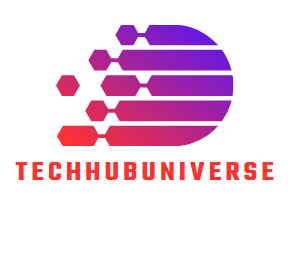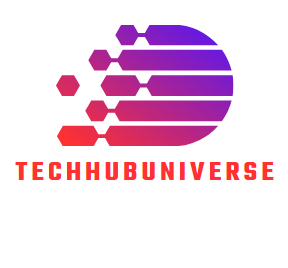Machine Learning Operations (MLOps) has emerged as a critical practice in modern artificial intelligence (AI) and machine learning (ML) workflows, ensuring smoother collaboration, reproducibility, and efficiency in managing ML models. As organizations increasingly adopt machine learning solutions, the need for robust tools to streamline model development, deployment, and monitoring becomes apparent. This article presents an overview of the significance of MLOps tools and their roles in improving model management, emphasizing their value to those pursuing a Data Science Course.
The Need for MLOps in Machine Learning
Traditional software development and operations (DevOps) practices focus on the continuous delivery of applications. However, the unique challenges posed by machine learning systems—such as data versioning, model lifecycle management, and dependency tracking—necessitate the evolution of DevOps into MLOps tools. Traditional tools fall short of MLOps tools in that they fail to address some of the challenges that MLOps tools effectively address.
Here are some of the challenges that MLOps tools address effectively:
● Complexity of ML Lifecycles: Unlike traditional software, machine learning models depend on data, training processes, and evolving algorithms. MLOps tools ensure consistency across these components.
● Scalability: Managing multiple models in production at scale demands standardized tools and processes.
● Reproducibility: Reproducing results is vital in machine learning processes, especially when models need to be updated or audited.
● Monitoring and Maintenance: Models in production require real-time monitoring for performance drift, data quality issues, or concept drift.
Data science students who aspire to be data professionals must learn to understand these challenges and how MLOps tools can be employed for addressing them. By enrolling in a Data Science Course in Mumbai and such learning hubs, they can enhance both their learning experience and career readiness.
Key MLOps Tools for Model Management
The following sections describe some prominent tools that play pivotal roles in the MLOps ecosystem. The tools are categorised under the functionality that they address.
Data Versioning and Experiment Tracking Tools
These are potent tools for maintaining consistency and reproducibility across datasets and experiments. They allow data scientists to track changes to datasets, log experiments, and compare results.
Notable Tools:
o DVC (Data Version Control): Helps version control datasets and ML pipelines, similar to Git for code.
o Weights and Biases (W&B): Tracks experiments, hyperparameters, and results, facilitating collaborative experimentation.
o MLflow: Offers experiment tracking, model management, and deployment capabilities, making it an all-in-one tool for MLOps.
Learning these tools in a Data Science Course equips students with practical skills to manage real-world projects efficiently.
Model Packaging and Reproducibility Tools
Packaging models and dependencies consistently is crucial for seamless deployment. Tools in this category focus on containerizing ML models and ensuring environmental consistency.
Notable Tools:
o Docker: Widely used for containerizing applications, including machine learning models, ensuring reproducibility across environments.
o KubeFlow: Built on Kubernetes, it simplifies deploying and managing machine learning workflows in production environments.
o Conda: Manages ML dependencies effectively and creates isolated environments for reproducibility.
Hands-on experience with these tools is often a core component of a comprehensive Data Science Course, preparing students for deployment challenges.
Model Deployment and Serving Frameworks
Deploying models into production cycles requires tools that can serve predictions reliably while handling scalability and latency demands.
Notable Tools:
o TensorFlow Serving: Specifically designed to deploy TensorFlow models at scale.
o TorchServe: A tool for serving PyTorch models with ease.
o BentoML: Simplifies model packaging and deployment, integrating seamlessly with various deployment platforms.
Monitoring and Feedback Tools
Monitoring machine learning models in production is vital to ensure they continue to perform well as data evolves. Monitoring tools provide insights into model performance, data drift, and error patterns.
Notable Tools:
o Evidently AI: Specializes in detecting data and model drift, providing visual reports and alerts.
o Prometheus with Grafana: Collects metrics and creates dashboards for machine learning model performance.
o Neptune.ai: Tracks metadata related to experiments, datasets, and models for better monitoring and collaboration.
For aspiring professionals completing a Data Science Course, learning these tools can give them a competitive edge in roles requiring machine learning model monitoring.
Workflow Orchestration Tools
Managing the end-to-end ML pipeline involves coordinating various tasks such as data preprocessing, model training, and evaluation. Workflow orchestration tools streamline these processes.
Notable Tools:
o Apache Airflow: Automates complex machine learning workflows with its DAG-based (Directed Acyclic Graph) approach.
o Prefect: Provides a modern workflow orchestration platform for machine learning pipelines with extensive cloud integrations.
o Metaflow: Developed by Netflix, it simplifies the development of machine learning workflows with strong data science-friendly APIs.
Benefits of Adopting MLOps Tools
Adopting MLOps tools offers tangible benefits for organizations, including:
Enhanced Collaboration
MLOps tools bridge the gap between data scientists, machine learning engineers, and operations teams, enabling smoother communication and collaboration. Tools like W&B and MLflow provide centralized platforms to share experiments and results.
Increased Efficiency
Automating workflows through tools like Airflow or KubeFlow considerably reduces the time spent on repetitive tasks, allowing teams to focus on innovation and optimization.
Improved Model Quality
Continuous monitoring and retraining pipelines ensure that deployed models remain accurate and reliable, reducing the risk of performance degradation.
Scalability
MLOps tools enable organizations to handle the complexities of scaling their machine learning solutions to accommodate larger datasets, more users, or increased demand.
Regulatory Compliance
Tools for version control, tracking, and monitoring support compliance with data governance and regulatory requirements, particularly in industries like finance and healthcare. The significance of these tools is even more relevant with regulatory compliance mandates getting stringent by the day.
For students and professionals, understanding these benefits can help them align their learning with industry expectations.
Conclusion
MLOps tools have become indispensable in managing the complexities of modern machine learning workflows. From data versioning and experiment tracking to deployment and monitoring, these tools ensure that ML solutions remain efficient, scalable, and reliable. Whether you are an experienced professional or a student, mastering MLOps tools by taking a well-rounded Data Science Course in Mumbai and such cities that have reputed technical learning institutes can unlock new opportunities. By keeping abreast of trends and embracing emerging tools, teams and individuals alike can ensure their machine learning models thrive in a dynamic and competitive landscape.
Business name: ExcelR- Data Science, Data Analytics, Business Analytics Course Training Mumbai
Address: 304, 3rd Floor, Pratibha Building. Three Petrol pump, Lal Bahadur Shastri Rd, opposite Manas Tower, Pakhdi, Thane West, Thane, Maharashtra 400602
Phone: 09108238354
Email: enquiry@excelr.com


Post a Comment